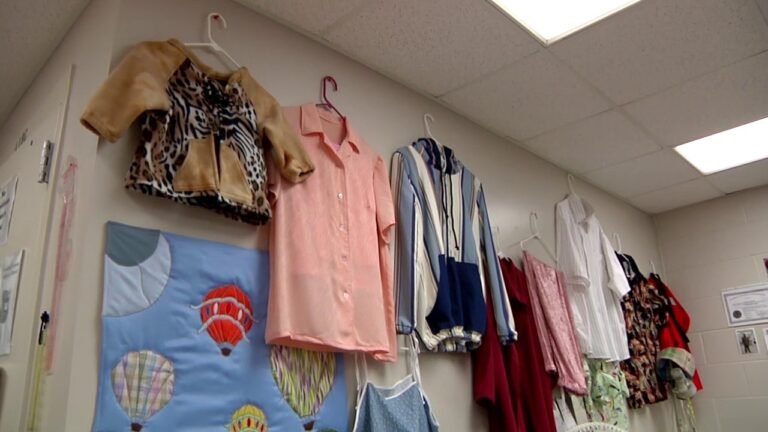Uncovering the Truth: The Guatemala Genocide Legacy
The Guatemala genocide, a dark chapter in the nation’s history, unfolded during the brutal civil war from the early 1960s to the late 1990s. Marked by widespread atrocities, it involved the systematic targeting of indigenous communities, resulting in the deaths of over 200,000 people and the displacement of countless others. As the world grapples with the legacy of such human rights violations, understanding the complexities of the Guatemala genocide is fundamental for acknowledging past injustices and fostering healing in a society still haunted by the scars of its turbulent history.
What were the causes of the Guatemala genocide?
The Guatemala genocide was caused by ethnic tensions, political repression, land disputes, and a brutal civil war targeting indigenous populations by the government and military.
What were the main causes of the Guatemala genocide during the 1980s?
The Guatemala genocide of the 1980s was primarily fueled by a complex interplay of political, social, and economic factors. The longstanding class disparities and deep-rooted racism against the indigenous population created a volatile environment. Following a coup in 1954, which was supported by the United States, the country saw a rise in authoritarian regimes that sought to suppress dissent and maintain power. This oppressive governance exacerbated tensions, leading to widespread human rights violations against those perceived as threats to the state, particularly among indigenous communities.
Another significant contributor to the genocide was the Cold War context, where U.S. interests in the region led to military support for the Guatemalan government. The regime’s counterinsurgency efforts were characterized by extreme violence, targeting not only armed opposition groups but also civilians who were suspected of sympathizing with them. This brutal campaign aimed to eliminate any potential support for leftist movements, which the government equated with communism. Consequently, the military employed systematic terror tactics, including massacres, forced disappearances, and the destruction of entire villages.
Finally, the failure of international organizations and humanitarian efforts to intervene effectively allowed the genocide to escalate unchecked. While some reports of atrocities emerged, the global community remained largely passive, often prioritizing geopolitical stability over human rights concerns. This lack of accountability and intervention empowered the Guatemalan military to continue its campaign of terror, resulting in the tragic loss of thousands of lives and the permanent displacement of entire communities. The legacy of this dark chapter continues to impact Guatemala, highlighting the need for justice and reconciliation.
How did the international community respond to the Guatemala genocide?
The international community’s response to the Guatemala genocide was marked by a mix of condemnation and limited action. In the 1980s, human rights organizations, such as Amnesty International and Human Rights Watch, drew global attention to the atrocities, prompting widespread outrage. However, many countries remained hesitant to intervene directly, often citing geopolitical interests or a desire to avoid further destabilization in Central America. The United Nations eventually took steps to address the human rights violations, leading to the establishment of the Historical Clarification Commission in the 1990s, which documented the extent of the genocide and recommended reparations for the victims. While these measures represented progress, the overall response was criticized for its delay and insufficient support for the affected communities.
What efforts have been made for justice and reconciliation in Guatemala following the genocide?
In the wake of Guatemala’s devastating genocide, significant efforts have emerged to seek justice and foster reconciliation among its diverse communities. The establishment of the Historical Clarification Commission in the late 1990s marked a pivotal step, as it documented human rights violations and acknowledged the suffering of victims, paving the way for healing. Subsequent legal actions against high-ranking military officials have underscored a commitment to accountability, while grassroots organizations tirelessly work to empower survivors and promote education about the past. Additionally, community dialogues and cultural initiatives have been instrumental in rebuilding trust among various ethnic groups, emphasizing the importance of memory and truth in creating a more just and united society.
A Hidden History: Stories of Survival and Resilience
Throughout history, countless individuals and communities have faced unimaginable challenges, yet their stories of survival and resilience remain largely untold. From the hidden narratives of enslaved people who forged networks of escape to the quiet triumphs of marginalized groups preserving their cultures against all odds, these accounts illuminate the strength of the human spirit. Each tale is a testament to the courage that emerges in times of adversity, revealing not just the struggles endured but also the hope and determination that inspire future generations. By unearthing these hidden histories, we not only honor those who came before us but also empower ourselves to confront our own challenges with tenacity and grace.
Echoes of the Past: Lessons from a Dark Chapter
History is a mirror reflecting the triumphs and trials of humanity, and within its shadows lie invaluable lessons. The echoes of past injustices remind us of the resilience required to overcome adversity and the importance of vigilance in safeguarding our freedoms. As we navigate the complexities of modern society, we must examine the mistakes of bygone eras, ensuring that we learn from them rather than repeat them. By honoring the stories of those who suffered, we cultivate empathy and understanding, paving the way for a brighter, more inclusive future. In acknowledging our history, we empower ourselves to forge a path of justice and compassion, transforming echoes of the past into a symphony of hope.
Healing Wounds: The Path to Justice and Reconciliation
In the journey toward justice and reconciliation, healing wounds becomes imperative for individuals and communities alike. This process involves acknowledging past traumas and fostering open dialogue, creating a safe space where stories can be shared without fear. As people confront their pain and the impact it has had on their lives, they begin to reclaim their narratives, transforming suffering into a collective understanding that paves the way for unity. Through empathy and support, communities can build bridges, fostering connections that transcend differences and promote healing.
As these conversations unfold, the path to justice emerges as a fundamental element in the reconciliation process. By addressing grievances and holding accountable those responsible for injustices, societies can restore faith and trust among their members. This commitment to justice not only honors the experiences of those affected but also lays the groundwork for a more equitable future. Ultimately, the intertwining of healing and justice creates a resilient foundation, empowering individuals and communities to rise together, ensuring that the lessons learned from the past guide them toward a brighter, more inclusive tomorrow.
Remembering the Forgotten: Voices of the Victims
In the shadows of history, countless victims have been silenced, their stories lost to time and neglect. Each voice carries the weight of untold suffering, yet within their narratives lies a powerful testament to resilience and the human spirit. By bringing these forgotten voices to light, we not only honor their memory but also challenge ourselves to confront the injustices of the past. It is essential to listen and learn from their experiences, for in understanding their pain, we pave the way for healing and a more compassionate future. Remembering the forgotten is not just an act of commemoration; it is a call to action for justice and recognition in a world that often overlooks the vulnerable.
The legacy of the Guatemala genocide serves as a poignant reminder of the importance of remembrance and justice. Acknowledging the past empowers survivors and communities, fostering healing and resilience. As the world reflects on this tragedy, it is imperative to advocate for truth, reconciliation, and the protection of human rights, ensuring that such atrocities never occur again. Only through collective awareness and action can we honor the victims and pave the way for a more just and compassionate future.






